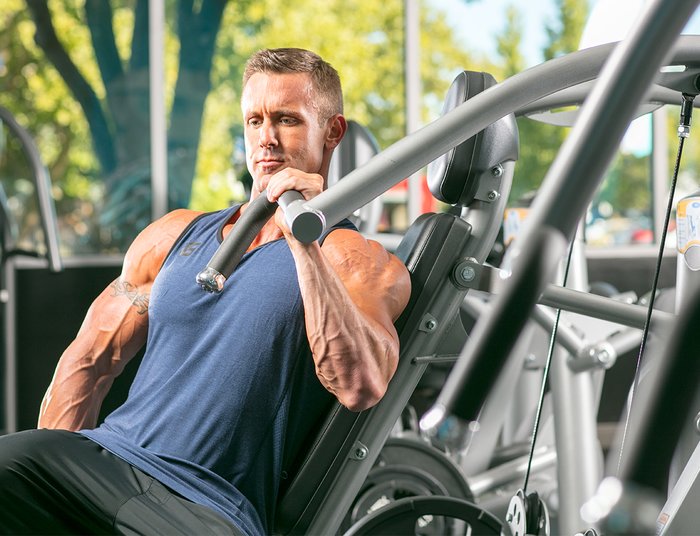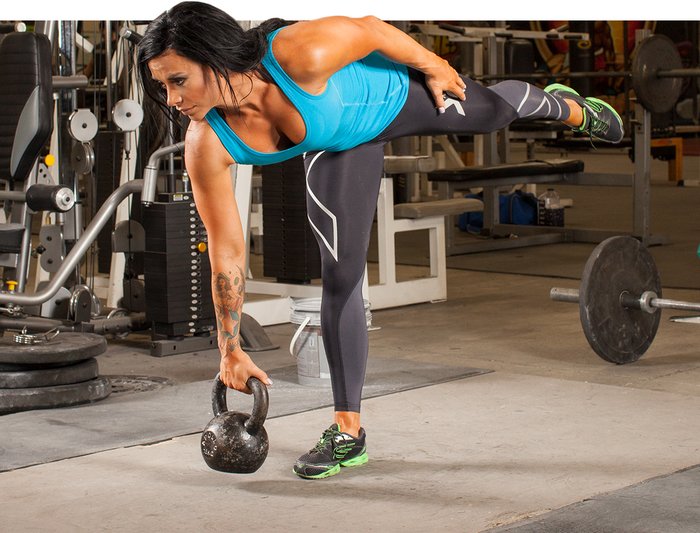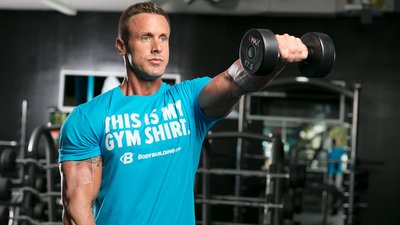If you need to get your training back on track, training one limb or side at a time—also known as unilateral training—may be just the jolt you need.
Single-arm rows and alternating biceps curls are great basic lifts most people in the gym are familiar with. But we tend to forget you can break down any major movements for the chest, legs, and back to isolate one side or the other.
Here are the primary benefits of unilateral training and why you should absolutely incorporate this training technique into your next workout.
Strengthen Your Weak Side
Most of us have one side that is a little weaker or not as defined as the other. Often, when you train with a barbell, the stronger side picks up the slack for the weaker side. The barbell can transfer some of the weight during lifts like the bench press. You can try to avoid this by using dumbbells, but lifting the two arms together still has a synergistic effect, where the weaker side is bolstered by the stronger side.[1]

But when you pick up only one weight and do the exact same movement, you may notice a huge difference between the strength and stability of your right side versus your left. Training unilaterally forces each side to do the exact same amount of work without any help from the other, giving both sides an equal workout and creating more symmetry in your physique.
Increase Your Gains
If you've hit a training plateau and can't make the transition to the next set of weights on the rack, it's time to try unilateral lifting. When you strengthen your weaker side with unilateral training, you will undoubtedly make gains to your normal, bilateral lifts that work both sides at the same time.
By taking the time to strengthen your weaker side, you'll easily overcome your plateau. You'll be able to push more weight when both sides are working together.

Hit Your Core Without Crunches
What does the core have to do with training shoulders unilaterally? Pick up one dumbbell and do a standing shoulder press. As you press with your right arm, take your left hand and touch your obliques. Feel how tight they are? Bingo!
When you train one side at a time, your core must work extra hard to stabilize your body so you don't tip over. If you don't tighten your core during these types of movements, you will look and feel like a Weeble Wobble. Speaking of wobbling….
Increase Your Balance
Unilateral training is all about balance. Exercises like single-leg deadlifts not only isolate the hamstrings, glutes, and lower back, but to do them you must balance on one leg throughout the movement.

Many of us don't set aside time during our workouts to specifically work on balance and coordination, so unilateral training is a great way to sneak it in. Balance and coordination is an essential element in any training regimen, as well as in everyday life. As we age, our ability to balance decreases. As the old saying goes, "Use it or lose it."
Sharpen Your Focus
Since lifting on only one side is not something your body is accustomed to, you must go through a mental checklist during a unilateral lift. This causes you to be more focused on your body, your alignment, and even your muscle contraction during your workout.
Unilateral training makes you slow down and think about the movement. In turn, it helps you focus more attention on the muscle group doing the work. By training unilaterally, you are more likely to properly engage the working muscle.
References
- Carroll, T. J., Herbert, R. D., Munn, J., Lee, M., & Gandevia, S. C. (2006). Contralateral effects of unilateral strength training: evidence and possible mechanisms. Journal of applied physiology, 101(5), 1514-1522.




